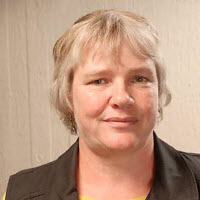
1. Where are you working at this moment?
Academic Medical Centre (AMC) Amsterdam, Department of General practice, section of medical ethics, and the University of Amsterdam, Department of Sociology and Anthropology.
2. Can you tell us about your research and its relation to the ethics of care?
In my research I develop an empirical ethics of care practices. This implies, so I would argue, an epistemological radicalization of the notion of relationality, by using this concept as a tool for the analysis of care practices. This means that entities get their shape in their interactions with other entities (people, words, technologies), and that care practices are inherently normative. In the establishment of relations, all the actors try to do this in a good way.
3. How did you get involved into the ethics of care?
I have been a ethnographer of care practices all my working career. Care practices are always aimed at ‘doing good’, and the very different ways in which this good is framed in and outside care practices has intrigued me ever since.
4. How would you define ethics of care?
The empirical ethics of care attempts to describe the normativity that is constituted in care practices by the establishment and negotiation of relations between the entities in these practices, and reflects on the results of this analysis.
5. What is the most important thing you learned from the ethics of care?
The understanding of people, things and concepts as the result of their relations to each other.
6. Whom do you consider to be your most important teacher(s) in this area?
Nurses and devices.
7. What works in the ethics of care do you see as the most important?
The scholars assembled in the book ‘Care in practice. On tinkering in clinic, homes and farms’ Bielefeld: transcript Verlag are good examples of inspiring workers in this area.
8. Which of your own books/articles should we read?
Pols, J. (2012) Care at a distance. On the closeness of technology. Amsterdam University press.
Somewhat older:
Pols, J. (2004) Good care. Enacting a complex ideal in long term psychiatry
9. What are important issues for the ethics of care in the future?
- The empirical turn in ethics of care.
- The extension of this work to domains of health care, particularly by promoting fitting methods to study care practices.
10. In Tilburg our ambition is to promote ethics of care nationally and internationally. Do you have any recommendations or wishes?
The dialogue between care workers and ethicists is important and delicate, but pivotal to an ethics of care that is able to reach actual care practices. Also: See 9.

0 reacties